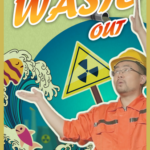Eleven years after the Fukushima nuclear disaster, Japan is moving forward with a controversial plan to discharge treated wastewater into the ocean—a decision raising eyebrows worldwide 🌍. While officials claim the water will be 'safe,' experts and neighboring countries worry about long-term environmental impacts.
Why the Ocean?
Of five disposal options reviewed since 2011, ocean release emerged as the cheapest and fastest solution. But critics argue it risks contaminating marine ecosystems far beyond Japan’s shores, potentially affecting fisheries and coastal communities for decades 🐟.
Science vs. Skepticism
Japanese authorities insist advanced filtration systems remove most radioactive elements, but traces of tritium—a hard-to-filter isotope—remain. ‘It’s like diluting a shot of vodka in the Pacific,’ one scientist quipped 🧪. Yet activists and nations like South Korea demand transparency, calling for independent verification.
What’s Next?
As discharge preparations ramp up, the debate highlights a global dilemma: balancing economic pragmatism with environmental stewardship. Stay tuned as we track this story’s ripple effects—from Tokyo boardrooms to TikTok debates 📲.
Reference(s):
cgtn.com

